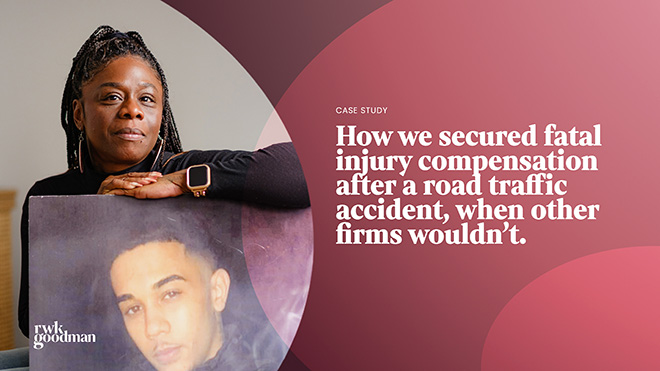Baby loss, stillbirths and the inquest process: information for parents and families

Losing a child is an unimaginable pain for many but sadly over 2,600 babies under 12 months old die each year and 3,200 babies are stillborn each year causing overwhelming grief for parents and families. A stillbirth is the death of a baby after 24 weeks of pregnancy but before or during birth.
The distress of losing an infant can be exacerbated where there are concerns about the medical treatment of a child, or treatment of a mother during pregnancy, which leaves questions about whether a child’s death may have been preventable.
Will an inquest be held for my child?
A coroner will call an inquest to determine the cause of death of a baby or child if this is not apparent from the medical history or the post mortem, or if there are any unanswered questions surrounding the circumstances of the death. For more information on inquests where a baby has died, please see our specialist infant loss webpage where you can contact us to find out how we may be able to help.
Currently, if a baby is stillborn then a coroner will not be able to hold an inquest as they are only able to investigate a death if a baby has shown signs of life after birth. However, the Government has put forward proposals to extend a coroner’s reach to investigate stillbirths that take place after 37 weeks of pregnancy. We hope that this will be adopted to allow more families to get answers through the independent inquest process.
What if there is not an inquest?
Where the coroner has decided not to hold an inquest, such as where the cause of death is known or where a baby has died before birth, but you have concerns about how your child died, then there are still ways you can investigate.
For babies who are stillborn, the hospital or NHS Trust in charge of the mother’s care will investigate, however, the form and extent of these investigations can vary across the country. The Healthcare Safety Investigate Brach (a government body) may also choose to investigate however, this is quite rare.
If a baby or young child has died in hospital, then it is likely that the hospital or NHS Trust will carry out an investigation in this instance as well.
Families or parents can also raise complaints about the treatment their child (or themselves) whilst in hospital or by a GP through the Trust’s complaints process.
For hospitals, this is normally run by the Patient Advice and Liaison Service and for complaints made within a year, the Trust has to provide a response. Even if you complain outside of this time limit, most Trusts are likely to consider and respond to a complaint. The charity AVMA provides a useful guide on making a complaint to the NHS.
If you have concerns about how a child or baby died because you feel that the care they received from a GP, hospital or other medical professional was not of a good standard then you may also wish to bring a clinical negligence claim.
As part of this process, lawyers will work with medical experts to review the treatment received and consider whether it was of a satisfactory standard and whether alternative treatment could have prevented a child’s death.
Bringing a claim can help secure financial compensation for you and your family, but importantly it can help you get answers to questions about the death, to seek an apology from those involved and to bring about changes to ensure that no other family has to suffer the loss of a child in similar circumstances.
If you have any questions about the inquest process following the loss of a child, please contact our enquiries team to see how we can help.
Call now











